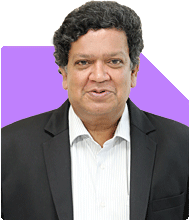Vaibbhav Patil | Answer |Ask -Follow
Physiotherapist, Strength Coach - Answered on May 23, 2023
Patil has been a physiotherapist and strength coach to Olympic champions like Abhinav Bindra, Yogeshwer Dutt and Amit Kumar.
A national level swimmer and a water polo player himself, he has worked with the Mittal Champions Trust, The Indian Olympic Association, Indian Wrestling Federation and Indian boxing team as a sports physiotherapist at several international competitions including the London Olympics.
Patil has a bachelor’s degree in physiotherapy from SDM College of Physiotherapy, Dharwad, and is a postgraduate in athlete biomechanics and sports analysis from the University of Bath, the United Kingdom.
He has also trained in matrix therapy and treatment of musculoskeletal and sports injuries with Dr Randol in Munich, Germany, and enjoys mentoring young athletes, physiotherapists and strength conditioning coaches.... more

dear sir Our Problems are unbalenced walking in starting, after1km walk, sever tiredness appears and cant stand propoerly, high cholestrol, Heel PAin in right leg and weakness
You will need a thorough assessment of the spine and blood supply to leg to be able rule out the root cause of your issue.
You may like to see similar questions and answers below
Dr Ashit Hegde | Answer |Ask -Follow
Consultant Physician, Internal Medicine and Critical Care Expert - Answered on Jun 01, 2023
Rebecca Pinto | Answer |Ask -Follow
Physiotherapist, Nutritionist - Answered on Sep 26, 2023
Rebecca Pinto | Answer |Ask -Follow
Physiotherapist, Nutritionist - Answered on Oct 25, 2023
Nidhi Gupta | Answer |Ask -Follow
Physiotherapist - Answered on Jul 08, 2024
Dr Dipankar Dutta |1836 Answers |Ask -Follow
Tech Careers and Skill Development Expert - Answered on Dec 05, 2025
Ulhas Joshi |280 Answers |Ask -Follow
Mutual Fund Expert - Answered on Dec 05, 2025
Dr Dipankar Dutta |1836 Answers |Ask -Follow
Tech Careers and Skill Development Expert - Answered on Dec 04, 2025
Ravi Mittal |676 Answers |Ask -Follow
Dating, Relationships Expert - Answered on Dec 04, 2025
Anu Krishna |1745 Answers |Ask -Follow
Relationships Expert, Mind Coach - Answered on Dec 04, 2025
Anu Krishna |1745 Answers |Ask -Follow
Relationships Expert, Mind Coach - Answered on Dec 04, 2025
Mayank Chandel |2562 Answers |Ask -Follow
IIT-JEE, NEET-UG, SAT, CLAT, CA, CS Exam Expert - Answered on Dec 04, 2025
Mayank Chandel |2562 Answers |Ask -Follow
IIT-JEE, NEET-UG, SAT, CLAT, CA, CS Exam Expert - Answered on Dec 04, 2025
Mayank Chandel |2562 Answers |Ask -Follow
IIT-JEE, NEET-UG, SAT, CLAT, CA, CS Exam Expert - Answered on Dec 04, 2025
Mayank Chandel |2562 Answers |Ask -Follow
IIT-JEE, NEET-UG, SAT, CLAT, CA, CS Exam Expert - Answered on Dec 04, 2025




























